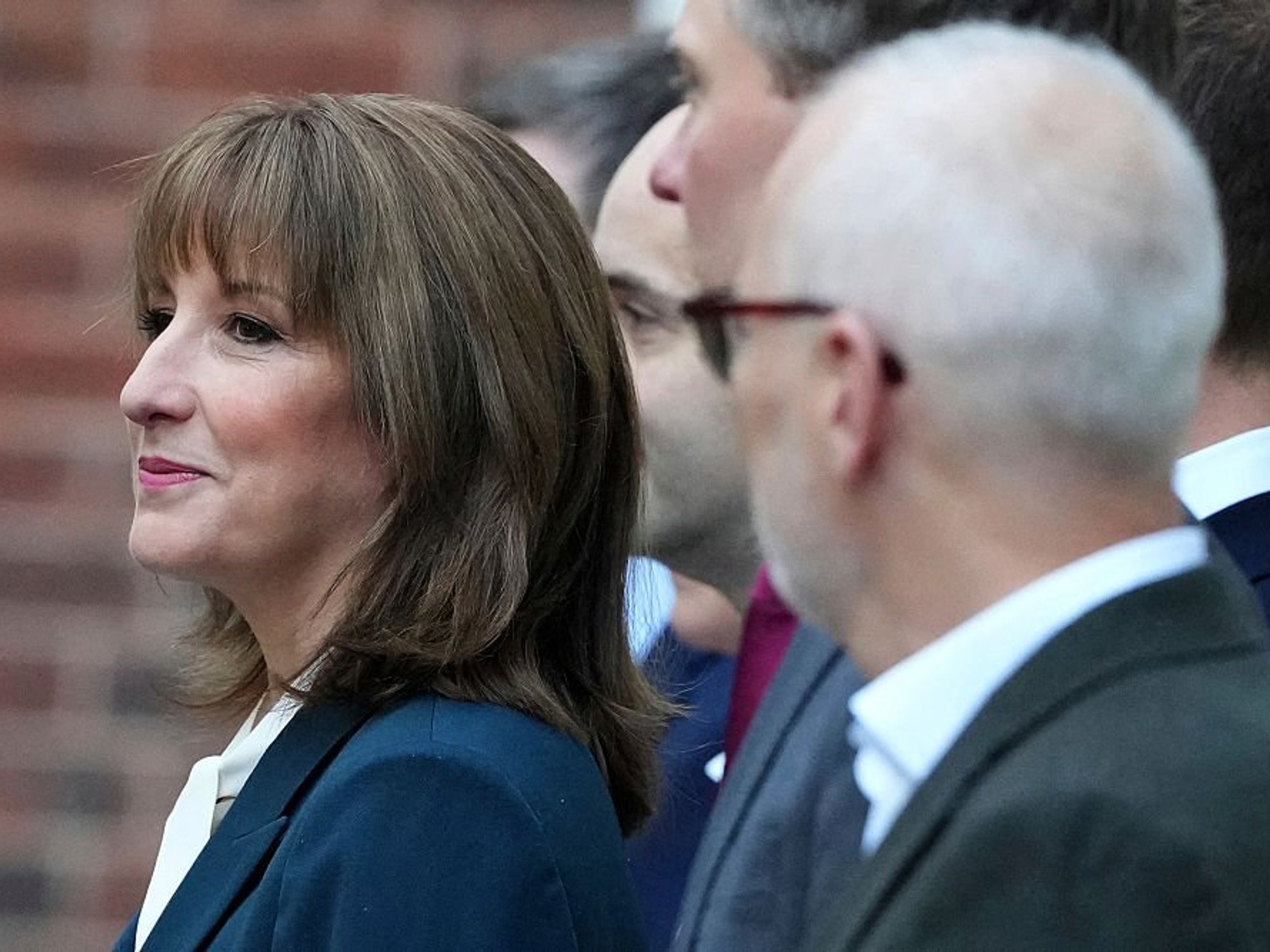State pension alert: Labour review could lead to £64,000 retirement boost as triple lock future uncertain

State pension age rise ‘almost inevitable’: Ann Widdecombe issues warning as Denmark raises the bar |
GBNews

Experts say state pension alone will fall short for most workers, with 91 per cent saving too little for a comfortable retirement
Don't Miss
Most Read
Millions of workers could retire with an extra £64,000 in their pension pots under Labour’s new retirement review, according to fresh analysis.



A Government-commissioned pensions commission is now examining sweeping reforms to auto-enrolment rules and experts say it could radically reshape the way Britain saves.
The new commission will focus on boosting savings rates among young workers, women, the self-employed and those on lower incomes. It’s also expected to review the current auto-enrolment minimum contribution rate and consider lowering the starting age from 22.
Jordan Clark, a financial planner at wealth manager Quilter said: "Given the state pension on its own cannot achieve a minimum standard of living, the burden for saving for retirement is very much on individuals.
"Automatic enrolment has helped boost pension participation, but clearly there remains a gap in engagement and education levels something that desperately needs addressing.
"People need to make sure they plan their finances before it is too late and give themselves enough time to rectify potential missed opportunities and mistakes from the past."

Research from wealth manager Quilter shows that even small increases to the current eight per cent contribution rate could significantly improve retirement outcome
| GETTYThe OBR said that the triple lock – which ensures the state pension rises in line with whichever is highest of inflation, wage increases or 2.5 per cent – will be three times more expensive by the end of the decade than it was expected to be when it was introduced in 2011, costing £15.5bn by 2030.
Richard Hughes, the OBR’s chair, said: "The UK public finances are in an unsustainable position in the long run. The UK cannot afford the array of promises that it has made to the public if you leave those unchanged based on a reasonable assumption about growth rates in the economy and tax revenues."
With state support looking unsustainable, research from wealth manager Quilter shows that even small increases to the current eight per cent contribution rate for work place pensions could significantly improve retirement outcomes.
Millions of workers could retire with tens or even hundreds of thousands of pounds more in their pension pots if the Government raises the minimum contribution level.
Government data shows 43 per cent of working-age adults are saving too little to maintain their standard of living in retirement.
And when measured against the Pension and Lifetime Savings Association’s benchmarks, the gap widens as 73 per cent fall short of a "moderate" standard and 91 per cent miss the target for a "comfortable" retirement.
Worryingly, today’s workers may retire no better off than those just five years ahead of them.Projections suggest retirement incomes in 2050 could be just one per cent higher than in 2025, and private pension provision may actually fall by eight per cent as final salary schemes vanish (around £800 less), DWP figures found.
However, Quilter modelled what could happen to a pension pot if the minimum contributions were increased up to four per cent, and the difference this could have on one's pension income in retirement.
Using average salary data (£35,204), and assuming two per cent wage growth, five per cent investment returns, and one per cent in fees, Quilter modelled the long-term impact of raising contributions. It assumed someone starts saving at age 22 and works until 68:
- 8 per cent = £514,475
- 9 per cent = £578,785
- 10 per cent = £643,094
- 11 per cent = £707,404
- 12 per cent = £771,713

Even a one per cent increase to nine per cent total could add £64,000 by retirement
| GETTYEven a one per cent increase to nine per cent total could add £64,000 by retirement. With a four per cent increase at 12 per cent total, savers could gain over £250,000 compared to the current baseline.
The exact amount will depend on how investments perform and how much is put into the pot. It will also depend on the rate of inflation, which, in real terms, could impact how much money people are making.
Ian Futcher, financial planner at Quilter, said not enough people are putting away what they need for a comfortable retirement.
Many in the pensions industry believed the Chancellor might have used her Mansion House speech to raise contribution rates.
Although she did not, Quilter says change could still come in the Autumn Budget. Futcher said that increasing contributions "would go some way towards resolving" the shortfall in retirement savings.
He added: "Just a one or two per cent increase could significantly add to someone’s total pension pot."
Clark said: "Today’s stats highlight that total incomes for individuals retiring in 2050 could be, on average, only one per cent higher than those retiring in 2025.
"Private pension provision flagged as having the potential to be eight per cent lower for the same time periods as final salary pensions are consigned to history. These stats highlight the need for a real wake up call for savers and their pensions."
Clark explained that clearly there is a desire from people to glide smoothly into retirement, but without a pension pot set up to do this, it simply won’t be possible.
Ultimately, today’s announcements from the Government suggest state pension age rises are on the table, and without sensible reform to the triple lock then there may be no choice.

With the state pension unable to fund even a basic retirement for many, experts say the case for reform is needed
| GETTYClark added: "The working-age population needs to be prepared to work later into life, with adequate private pension provision being the only route to avoiding this. There is a real need for bold and innovative solutions to the problems faced, and arguably speed is of the essence."
Futcher stressed that younger workers stand to gain the most from compounding returns. But there are warnings too as higher contributions could strain small businesses and lower earners, especially following the recent rise in employer National Insurance to 15 per cent from 13.8 per cent.
"A requirement to pay more into employee pensions could place significant strain on businesses," he said.
While an increase in the minimum rate is expected, the Government has said this will not happen during this parliament.
The commission's findings are expected by 2027, and while no changes are imminent, the direction of travel is clear. With the state pension unable to fund even a basic retirement for many, experts say the case for reform is needed.
More From GB News










